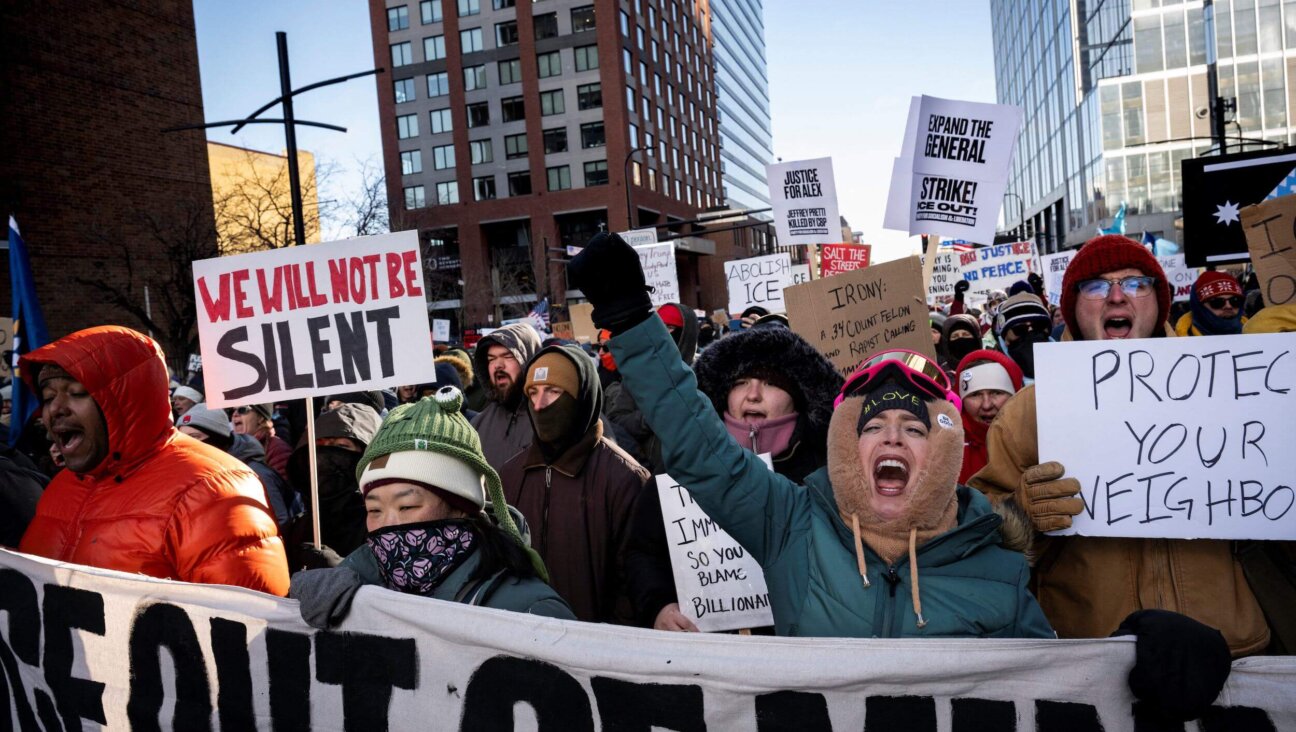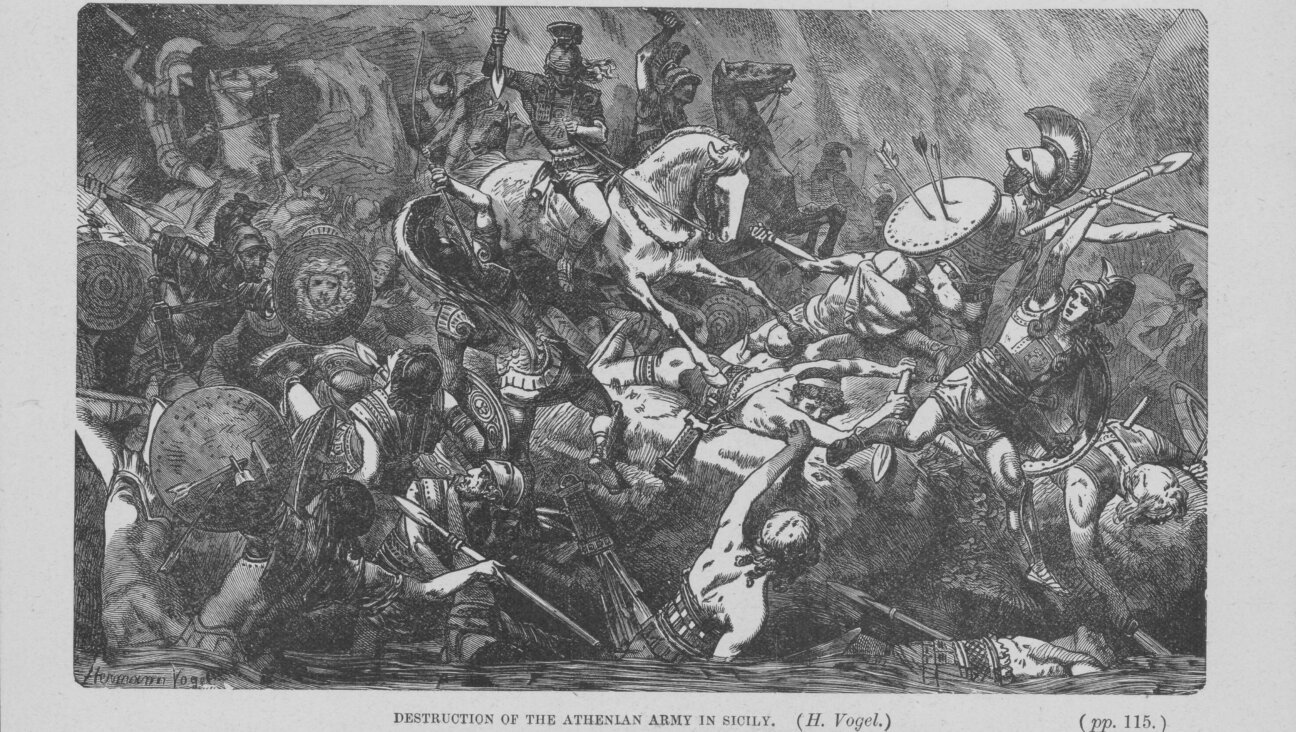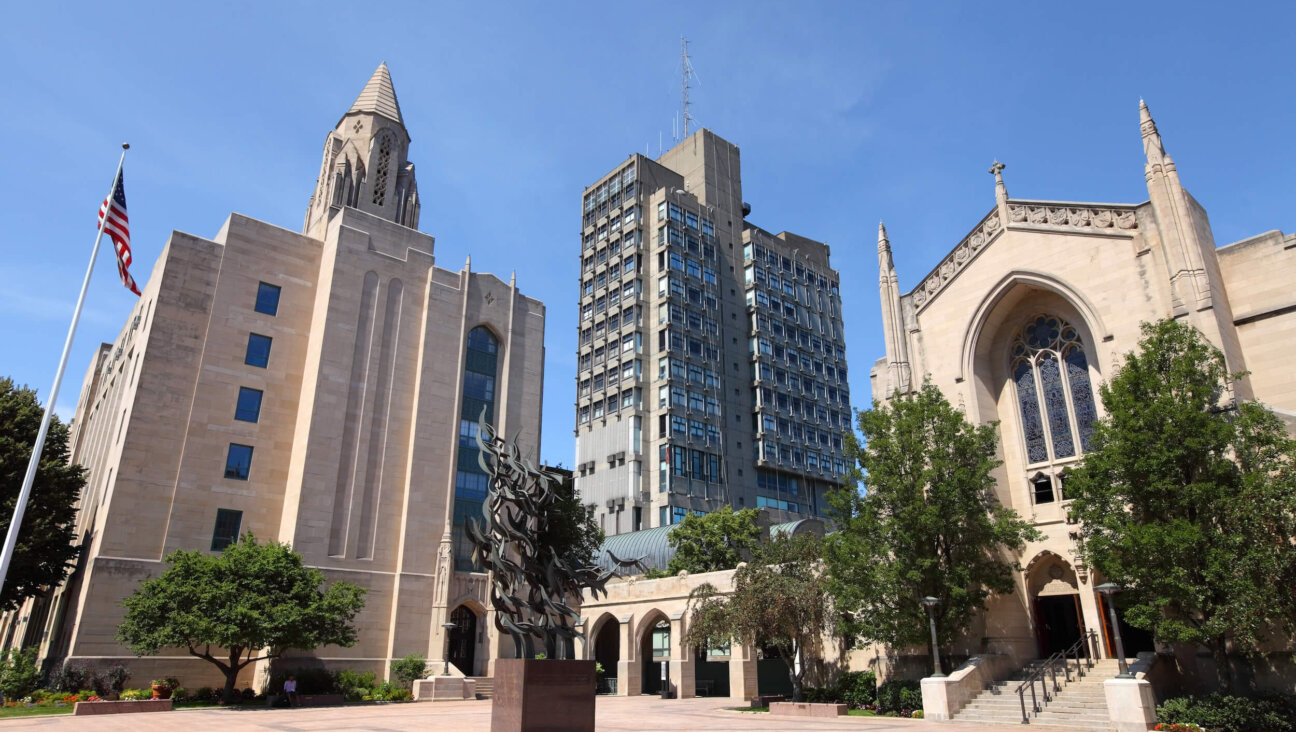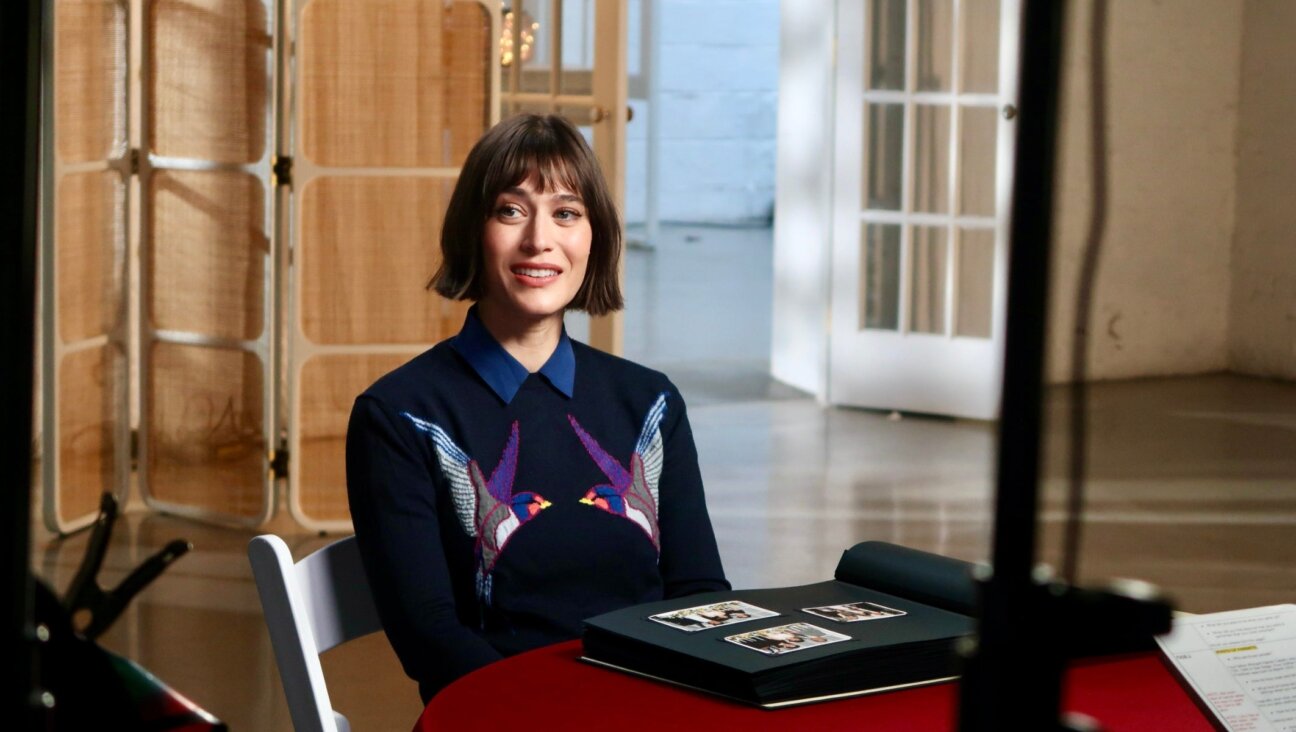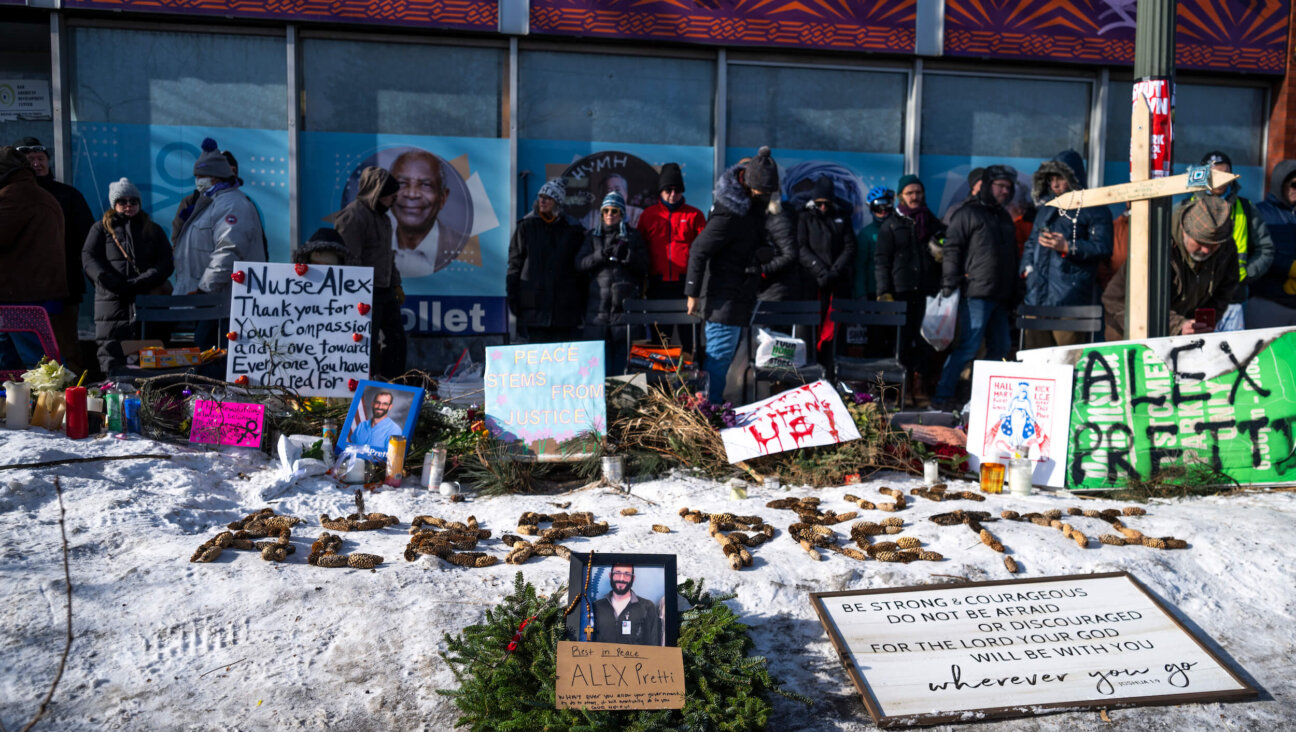Shaking the Pillars of Israeli Democracy
There’s an old rule of thumb among journalists, safety engineers and other professional snoops: One is happenstance, two is a coincidence, three is a trend.
That’s what is so worrying about the witch-hunt recently launched against the New Israel Fund by a group of Israeli right-wing bullies that calls itself Im Tirtzu (“If you will it”). In a narrow sense, it’s an unfortunate effort by a few hotheads to intimidate Israeli human rights organizations and their American Jewish backers by accusing them of bringing their country’s shortcomings to light — which is, of course, what human rights organizations are supposed to do. If that were all, it wouldn’t amount to much more than an annoyance.
Seen more broadly, though, it’s the latest in an alarming series of assaults on democratic norms in the Jewish state. As the saying goes, it’s part of a trend. And that demands a closer look.
The New Israel Fund affair started innocently enough with the release on January 29 of a report from Im Tirtzu fiercely assailing some NIF grantee organizations. The document, basically a high-tech statistical breakdown of the footnotes in the Goldstone report on the Gaza conflict, showed that the Goldstone team got information on possible Israeli human rights violations from (of all places) Israeli human rights groups, most of which were funded by NIF. The day after the report on NIF hit the newspapers, Im Tirtzu launched phase two: an ugly street campaign against the New Israel Fund’s president, former Knesset member Naomi Chazan, featuring a noisy demonstration outside her home and a newspaper ad depicting her with a horn on her head.
That alone would be troubling enough. But this isn’t merely about an attack on the New Israel Fund and the human-rights groups it supports. Over the past few months Israel has seen a startling string of attacks on dissenters and human rights advocates, escalating from published broadsides vilifying them, through legislative initiatives to stifle them, all the way up to arbitrary arrests of peaceful protesters.
In addition to freelance sorties by groups like Im Tirtzu and the more-established NGO Monitor, elements of Israeli officialdom have sporadically joined the fray. The Jerusalem police deserve special mention; they’ve lately taken to breaking up peaceful demonstrations that once would have proceeded undisturbed. Since last fall, dozens of Israelis have been arrested during peaceful protests against Palestinian home evictions in East Jerusalem. Police claim the arrests were for demonstrating without a permit. A judge found the pretext so flimsy that the cases were summarily dismissed.
Palestinians say they have long been getting rough treatment from Israeli authorities, and Israelis are upset now because suddenly Jews are getting strong-armed. Protesters in West Bank villages bisected by the security barrier have been getting arrested, tear-gassed and even shot for years. Arab Israeli citizens are still smarting over the police killings of 13 youths during rock-throwing demonstrations back in October 2000. Police don’t open fire on Haredim or settlers who throw rocks — only on Arabs.
In a way, though, that’s the point. The differing ways authorities respond to Arab and Jewish protesters are partly a reflection of racism, but another factor is at least as important: the longstanding assumption among state officials that Arab unrest had a nationalist component and therefore threatened Israeli security. Jewish protests, by contrast, have been treated as little more than disorderly conduct.
But the lines are blurrier than they used to be. The important fault line between tolerated and non-tolerated dissent today is more ideological than ethnic. The Netanyahu government, nearing the end of its first year, views itself as fighting a war of ideas with life-and-death stakes for Israel’s survival. Large segments of the public share that view. This is a combustible situation: When ideas are a battleground and words are weapons, expressing the wrong opinions can brand you as an enemy — even if you think you’re a patriot.
It’s ironic: Democracy and free speech are supposed to serve as ground rules on the battlefield of ideas, as a bulwark against intolerance. And yet, when the battle gets fierce, democratic freedoms are often the first victims.
There’s another reason for Israel’s current mood of impatience and intolerance. Netanyahu is under enormous international pressure to resume negotiations toward permanent peace agreement with the Palestinians. If and when talks get serious, it’s clear that the Palestinians will insist on a sharing or division of Jerusalem. That’s a red line for many Israelis. In anticipation, groups on the right are racing to solidify Israeli residential presence in Arab neighborhoods in East Jerusalem, in hopes of making partition impossible. This has prompted a whole new category of rights abuses, under the heading of equal protection under law.
Two such incidents are subjects of international furor right now. One involves Jerusalem Mayor Nir Barkat’s repeated defiance of court orders since last fall to seal off a Jewish apartment house built without a permit in East Jerusalem, despite having executed dozens of demolitions of Arab homes for the same violation during the past year. More alarming, courts have been systematically approving Jewish suits to reclaim East Jerusalem properties lost in the 1948 war, even as Israel wages a furious international campaign to prevent Palestinians from making the same claims to their pre-1948 property.
Any one of these abuses — demonizing dissenters, arresting peaceful protesters, double standards in home demolitions and property claims — would be an offense against democratic norms. Coming in a wave, they constitute a challenge to Israeli democracy itself.
There’s no evidence that anyone inside or outside government is orchestrating this corrosive trend. Perhaps it would be better if someone were behind it. Then at least we’d know where to bring complaints. Instead, we’re left to shake our heads sadly and worry about the future.
Contact J.J. Goldberg at [email protected] and follow his blog at blogs.forward.com/jj-goldberg


